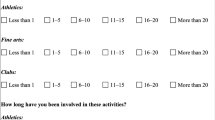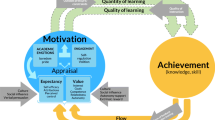Abstract
In France, despite efforts on the part of the authorities, grade repetition continues to be practised in schools. Internationally, there is a great diversity of pratice in this area, both in Europe and in the rest of the world. In European countries that use repetition, such as Belgium, France and Switerland, teachers affirm their confidence in the positive results of the practice. Much research, however, indicates that repetition is not beneficial to the pupil concerned. Furthermore, it is possible, using standardized tests developed by the International Association for the Evaluation of Educational Achievement, to demonstrate that countries which have abandoned grade repetition have not suffered a lowering of educational standards, nor have they incurred extra costs. One way to reduce the need for repetition would be to give teachers better information on the real potentialities of each pupil, thus helping them to practice a more individualized form of pedagogy.
Similar content being viewed by others
Références
Crahay, M. 1996. Peut-on lutter contre l'échec scolaire? Bruxelles: De Boeck Université.
Eurydice. 1994. La lutte contre l'échec scolaire: un défi pour la construction européenne. Bruxelles: Commission des Communautés Européennes.
Holmes, C. T. 1989. Grade Level Retention Effects: A Meta-Analysis of Research Studies, in Shepard et Smith, eds. (16–33).
Hutmacher, W. 1993. Quand la réalité résiste à la lutte contre l'échec scolaire. Analyse du redoublement dans l'enseignement primaire genevois. Genève: Service de la recherche sociologique. Cahier no 36.
Leboulanger, M. 1995. Le redoublement au collège. Des représentations des enseignants à une autre réalité sociale et psychologique. Troyes: Centre départemental de documentation pédagogique de l'Aube.
Paul, J.-J. 1996. Le redoublement: pour ou contre? Paris: ESF Editeur.
Perrenoud, P. 1996. Lorsque le sage montre la lune ... l'imbécile regarde le doigt. De la critique du redoublement ă la lutte contre l'échec scolaire. Eduquer et Former, Théories et Pratiques. Bruxelles.
Pini, G. 1991. Effets et méfaits du discours pédagogique: échec scolaire et redoublement vus par les enseignants. Éducation et recherche/Bildungsforschung und Bildungspraxis: 255–272.
Seibel, C. 1984. Genèses et conséquences de l'échec scolaire: vers une politique de prévention. Revue française de pédagogie 67: 27–28.
Shepard, L. A. and Smith, M. L. 1989. Flunking Grades: Research and Policies on Retention. London: Falmer Press.
UNESCO. 1995. Rapport mondial sur l'éducation. Paris: Éditions UNESCO.
Author information
Authors and Affiliations
Rights and permissions
About this article
Cite this article
Paul, JJ. Le Redoublement à L'école: Une Maladie Universelle?. International Review of Education 43, 611–627 (1997). https://doi.org/10.1023/A:1003062710219
Issue Date:
DOI: https://doi.org/10.1023/A:1003062710219




